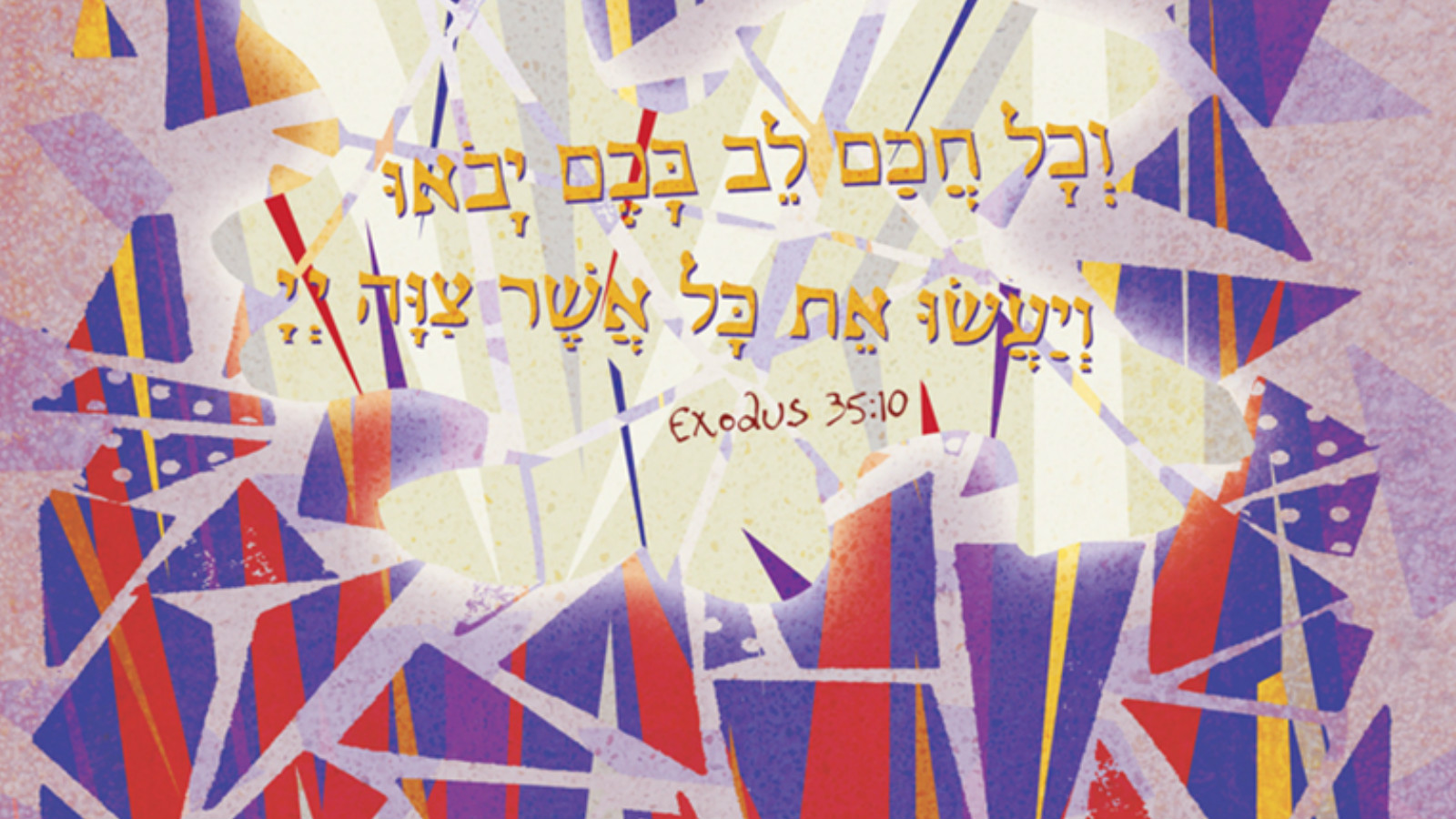Commentary on Parashat Vayakhel, Exodus 35:1-38:20; Numbers 19:1-22
The Torah portion of Vayakhel is all about the heart — and what is possible when it is engaged.
It is the aftermath of the Jews’ sin of the Golden Calf, an idol made by the Israelites during Moses’ absence when he went up to Mount Sinai. Moses gathers the Jewish nation to begin the process of building the Tabernacle, an atonement for their collective transgression. He calls for every Jew to donate his or her gold, silver and copper to build it. Moses, almost poetically, describes all those who will give as kol n’deev leebo, “every generous-hearted person…” (Exodus 35:5) And with this verse, the Torah uses the Hebrew word lev, heart, for the first time in this portion.
The gifts begin to pour in. The Torah states, Va’yavo’u kol eesh asher n’sa’o leebo, “Every man whose heart uplifted him came (to donate)…” (Exodus 35:21) The Jews do not give merely out of duty — they are inspired, energized, engaged. Their hearts are in it. So much so that they give more than even Moses himself anticipated, and he asks them to halt their giving (a dream come true for anyone who has ever run a fundraising campaign).
And now, the materials have been collected from “generous-hearted” people, and we meet the artists who will assemble the Tabernacle. And how are they described? “….Wise-hearted men into whose heart the Lord had given wisdom, everyone whose heart lifted him up to approach the work to do it.” (Exodus 36:2) This is a curious way to describe talented craftsmen. No mention of their training, their practice, their creativity. To build something so exceptional, one had to develop the wisdom of heart, of intuition. Their inner compass. That still, small voice inside. That is the ultimate wisdom. And only with passion, inspired giving and intuition could a Tabernacle, a physical edifice that would act as a home for the Divine, be built.
With your help, My Jewish Learning can provide endless opportunities for learning, connection and discovery.
There are those who imagine a Judaism that is devoid of heart — who celebrate intellectual pursuits and understandings of spirituality that somehow fit into our minds. They stress duty. They laud logic. They assume feelings are, and should be, secondary. Yet is this what God wants from our Jewish practice?
I was raised in a community that celebrated the emotional side of Judaism. I was inculcated with a respect for study, but with the development of our passions and feelings for our practice. There was an emphasis on performing rituals with joy. We were given opportunities to ask questions. We were encouraged to find personal meaning in biblical narratives. I was taught that each one of us has a unique mission in this world, a deep calling — and that God is waiting for us, wanting us to fulfill it. And I’m grateful for this framing to my Judaism. I do not believe I could stay engaged out of duty alone. I could not stay committed if I did not believe God wanted my whole self, warts and all, invested in my relationship with Him.
God wants my heart in it, all the time. And it’s not easy. So much of my life feels like it’s on autopilot. Motherhood. Work. Marriage. Friendships. How much time do I spend staring blankly into my phone? How much time trying to stay afloat amid the juggle? Who has time for spiritual practice? Sometimes, it feels like my heart is numb. Tired. Calloused.
At times like this, I remind myself that I am part of something bigger, that I am needed. There is wisdom deep inside, guiding me on this journey, and that awareness unlocks my heart.
To build a movement, to sustain a revolution, our passions must lead to action. We must give of ourselves, our whole selves, with an uplifted spirit and joyful heart — and erect a Temple. Because each one of us is a craftsman, building our destiny in this world.



